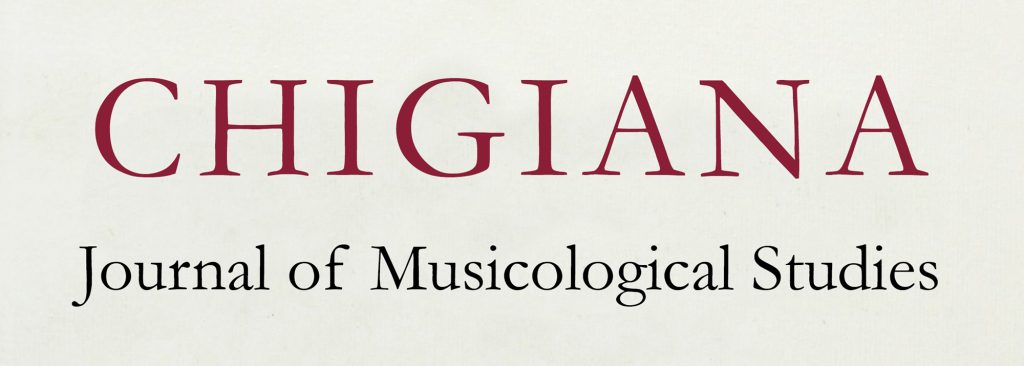
Francesco Lora (Università “Alma Mater” di Bologna)
Histories of Music
The recovery of ancient literature at the Chigiana under the direction of Mario
The Settimana Musicale Senese emerged as a festival with a musicological orientation, directed towards the rediscovery of hitherto neglected composers, scores and genres. This process of rediscovery culminated during the years of Mario Fabbri’s Chigiana artistic direction (1963-69). In that period, concerts and publications were dedicated to, among others, Arcangelo Corelli, Alessandro Scarlatti, Giacomo Antonio Perti and Georg Friedrich Händel. Such a pioneering initiative brought the music of these composers back onto the musical billboards and led to an increase in the specialised bibliography. One issue, however, has remained shrouded in a respectful silence: Fabbri published sensational documents to restore the history of the compositions he selected, but the original manuscripts he refers to have never been found, and the information contained therein creaks in the face of today’s historical-musicological awareness. Are these unscrupulous forgeries, produced ad hoc? It remains interesting, however, to highlight a phenomenon that sprouted in those years, and that is more than ever prodigal today with greedy but toxic fruits: re-proposing early music literature, in fact, finds a guarantee in the history that each score can carry with it; even at the cost of inventing it.
Storie della musica
Il recupero della letteratura antica alla Chigiana sotto la direzione di Mario Fabbri
In seno alla Chigiana, la Settimana musicale senese s’è distinta come festival d’indirizzo musicologico, per la riscoperta di autori, partiture e generi fino ad allora negletti. Ciò ha avuto un culmine negli anni della direzione artistica di Mario Fabbri (1963-69). Inediti e memorabili spazi, concertistici e saggistici, sono stati allora dedicati, tra gli altri, ad Arcangelo Corelli, Alessandro Scarlatti, Giacomo Antonio Perti e Georg Friedrich Händel: tale pionierismo ha giovato al ritorno delle loro musiche nei cartelloni e all’incremento della bibliografia specialistica. Conviene però tornare su una vecchia questione tuttora coperta da rispettosa omertà: Fabbri pubblicò sensazionali documenti onde restituire la storia delle musiche da lui selezionate, ma gli originali manoscritti non sono mai stati reindividuati, e le informazioni lì contenute scricchiolano davanti all’odierna consapevolezza storico-musicologica. Si tratta di spregiudicati falsi, prodotti ad hoc? Se sì, interessa comunque evidenziare un fenomeno germogliato in quegli anni e più che mai oggi prodigo, in tutto il mondo, di frutti ghiotti ma tossici: riproporre la letteratura musicale antica, infatti, trova una garanzia nella storia che ciascuna partitura può recare con sé; anche a costo d’inventarla.
